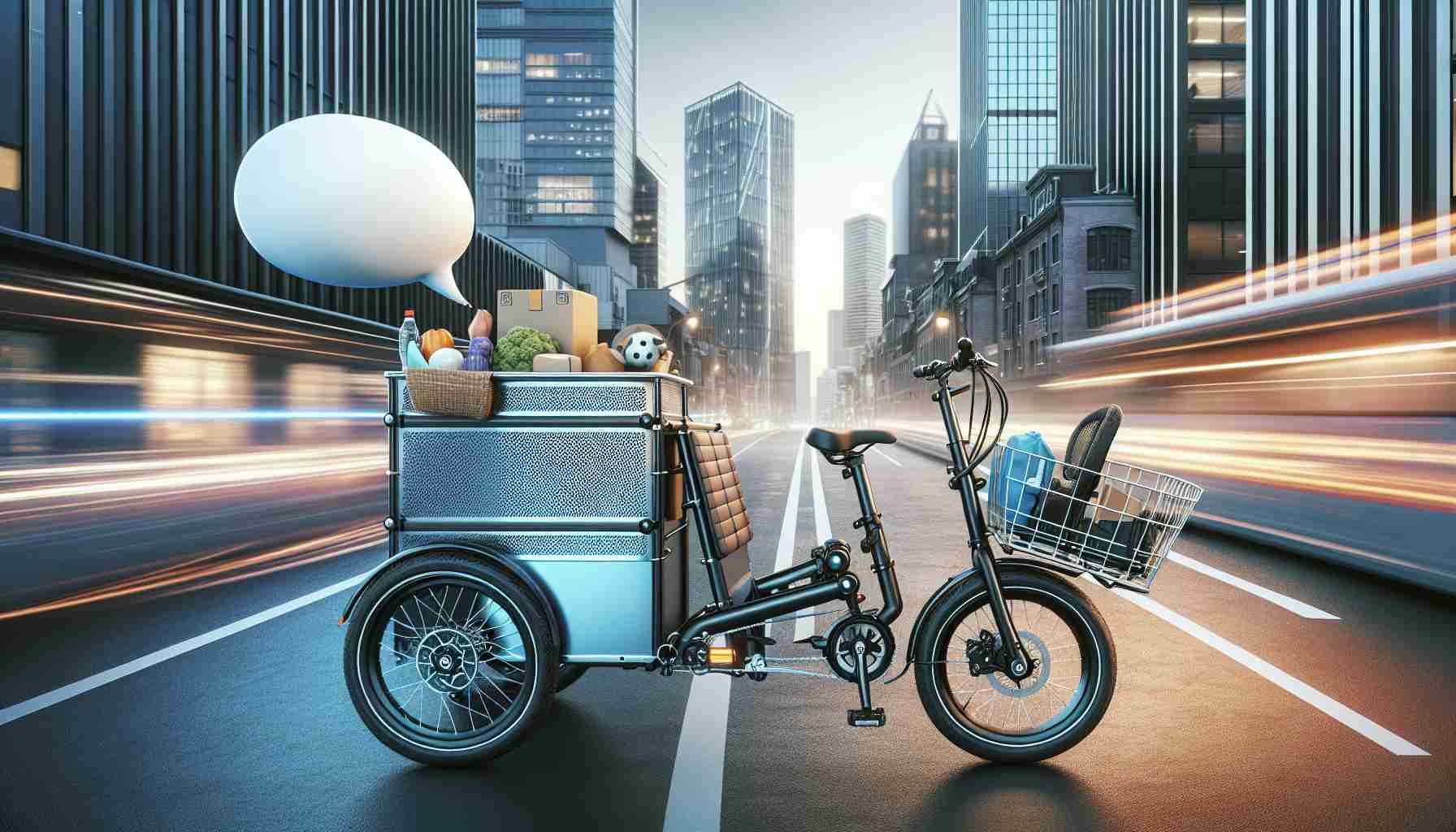The rise of cargo bikes is transforming urban transportation. As more people look to swap their traditional cars for these versatile bicycles, it’s crucial to know what to consider before making the switch.
In 2023, the popularity of electric cargo bikes surged, with 35,000 units sold to individuals, not including those used by delivery services. This trend reflects the increasing consumer interest in sustainable transport options. Enthusiastic manufacturers are responding to this demand, offering a variety of options suited for both families and professionals.
When choosing a cargo bike, one must decide between specialized brands or those aimed at the general public. Models like the biporteur, which features a front cargo area, and the longtail, known for transporting passengers on the rear platform, each serve different needs. While established brands such as Douze Cycles and Yuba have long specialized in cargo bikes, newcomers like Canonball and Trek are also entering the market.
Potential buyers should also be aware of pricing, as the average cost of an electric cargo bike is around €3,600, often significantly higher than standard models. However, investing in a durable bike could save money in the long run, especially for those who plan on extensive daily use.
With growing interest from families and eco-conscious consumers alike, cargo bikes are not only a practical choice but an exciting step toward sustainable city life.
The Cargo Bike Revolution: Everything You Need to Know Before Switching
The rise of cargo bikes is revolutionizing urban transportation, pushing more individuals to reconsider their reliance on traditional cars. In 2023, the enthusiasm for electric cargo bikes reached new heights, with 35,000 units sold to consumers, indicating a significant shift towards more sustainable transport options. This burgeoning interest means it’s essential to understand what factors to consider when contemplating a switch to cargo bikes.
Key Considerations When Choosing a Cargo Bike
1. Types of Cargo Bikes:
– Biporteur: Known for its front cargo area, this model is ideal for carrying large items or supplies, making it suitable for professionals and families alike.
– Longtail: This type allows for transporting passengers on an extended rear platform, perfect for family outings.
2. Brand Choices:
Established brands such as Douze Cycles and Yuba have been pioneering the cargo bike market for years. However, new companies like Canonball and Trek are introducing innovative models, expanding the available choices for consumers.
3. Pricing Insights:
The average price of an electric cargo bike hovers around €3,600, considerably higher than standard bikes. While the upfront cost may be steep, the long-term savings on fuel and maintenance can make these bikes a financially sound investment for daily commuters.
Pros and Cons of Electric Cargo Bikes
Pros:
– Environmentally friendly alternative to cars.
– Cost-effective in the long run, particularly for frequent users.
– Versatile, with models designed for families, professionals, and specific transport needs.
Cons:
– Higher initial investment compared to traditional bicycles.
– Potentially limited range on battery-powered models compared to cars.
– Storage and parking may present challenges in urban settings.
Use Cases for Cargo Bikes
– Family Transportation: Parents can transport kids to school, activities, and daycare without using a car.
– Grocery and Delivery Services: Ideal for local deliveries, reducing the carbon footprint while ensuring goods are transported efficiently.
– Recreational Activities: Cargo bikes can also serve recreational purposes, enabling users to enjoy outdoor adventures with family and friends.
Trends and Innovations in the Cargo Bike Market
The cargo bike market is evolving rapidly, responding to the needs of urban dwellers. Innovations include:
– Enhanced battery technologies for longer rides.
– Modular designs that allow for customized configurations.
– Accessories like child seats, storage boxes, and weather protection to enhance usability.
Market Analysis and Future Predictions
As urban areas continue to focus on sustainability, the demand for cargo bikes is expected to grow. An increasing number of city-wide initiatives, such as dedicated bike lanes and bike-sharing programs, will facilitate this trend. Experts predict that by 2025, sales of cargo bikes could increase by 50%, driven by ongoing consumer commitment to greener transportation solutions.
Security Aspects
Investing in robust security features is crucial, as cargo bikes can be targets for theft. Consumers should look for:
– Integrated locking systems.
– GPS tracking devices.
– High-quality locks to deter opportunistic theft.
Conclusion
Cargo bikes represent an exciting shift towards sustainable urban mobility. With a variety of options available, potential buyers can find a model that suits their lifestyle—whether for family use, delivery, or recreation. As the market continues to grow and evolve, the impact of cargo bikes on city life is set to expand significantly.
For more insights on sustainable transport and lifestyle choices, visit our main site.


















